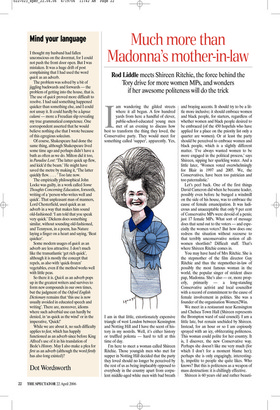Mind your language
I thought my husband had fallen unconscious on the doormat, for I could not push the front door open. But I was mistaken. It was a huge drift of post complaining that I had used the word quick as an adverb.
The problem was solved by a bit of jiggling backwards and forwards — the problem of getting into the house, that is. The use of quick proved more difficult to resolve. I had said something happened quicker than something else, and I could not unsay it. It could hardly be a lapsus calami — more a Freudian slip revealing my true grammatical competence. One correspondent asserted that he would believe nothing else that I wrote because of this egregious solecism.
Of course, Shakespeare had done the same thing, although Shakespeare lived some time ago and perhaps didn’t have a bath as often as we do. Milton did it too, in Paradise Lost: ‘The latter quick up flew, and kick’d the beam.’ He might have saved the metre by making it, ‘The latter quickly flew.... ’ Too late now.
The empirically philosophical John Locke was guilty, in a work called Some Thoughts Concerning Education, forsooth, writing of a ‘person who writes well and quick’. That unpleasant man of manners, Lord Chesterfield, used quick as an adverb in a way that makes him sound old-fashioned: ‘I am told that you speak very quick.’ Dickens does something similar, without sounding old-fashioned, and Tennyson, in a poem, has Nature laying a finger on a heart and saying, ‘Beat quicker’.
Some modern usages of quick as an adverb are less attractive. I don’t much like the transatlantic ‘get rich quick’, although it is mostly the concept that repels, as also with ‘quick-frozen’ vegetables, even if the method works well with little peas.
So there it is. Quick as an adverb pops up in the greatest writers and survives to form new compounds in our own times, but the judgment of the Oxford English Dictionary remains that ‘this use is now usually avoided in educated speech and writing’. There are, moreover, idioms where such adverbial use can hardly be denied, in ‘as quick as the wind’ or in the imperative, ‘Quick!’ While we are about it, no such difficulty applies to fast, which has happily functioned as an adverb since before King Alfred’s use of it in his translation of Bede’s History. May I also make a plea for first as an adverb (although the word firstly has also long existed)?


































































 Previous page
Previous page